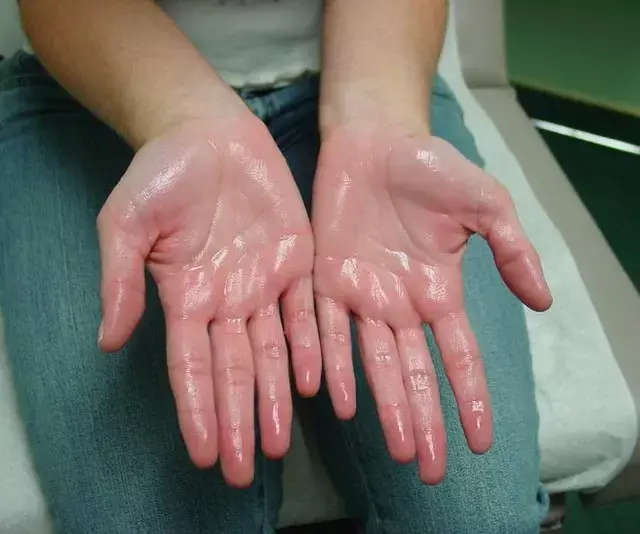- Home
- Medical news & Guidelines
- Anesthesiology
- Cardiology and CTVS
- Critical Care
- Dentistry
- Dermatology
- Diabetes and Endocrinology
- ENT
- Gastroenterology
- Medicine
- Nephrology
- Neurology
- Obstretics-Gynaecology
- Oncology
- Ophthalmology
- Orthopaedics
- Pediatrics-Neonatology
- Psychiatry
- Pulmonology
- Radiology
- Surgery
- Urology
- Laboratory Medicine
- Diet
- Nursing
- Paramedical
- Physiotherapy
- Health news
- Fact Check
- Bone Health Fact Check
- Brain Health Fact Check
- Cancer Related Fact Check
- Child Care Fact Check
- Dental and oral health fact check
- Diabetes and metabolic health fact check
- Diet and Nutrition Fact Check
- Eye and ENT Care Fact Check
- Fitness fact check
- Gut health fact check
- Heart health fact check
- Kidney health fact check
- Medical education fact check
- Men's health fact check
- Respiratory fact check
- Skin and hair care fact check
- Vaccine and Immunization fact check
- Women's health fact check
- AYUSH
- State News
- Andaman and Nicobar Islands
- Andhra Pradesh
- Arunachal Pradesh
- Assam
- Bihar
- Chandigarh
- Chattisgarh
- Dadra and Nagar Haveli
- Daman and Diu
- Delhi
- Goa
- Gujarat
- Haryana
- Himachal Pradesh
- Jammu & Kashmir
- Jharkhand
- Karnataka
- Kerala
- Ladakh
- Lakshadweep
- Madhya Pradesh
- Maharashtra
- Manipur
- Meghalaya
- Mizoram
- Nagaland
- Odisha
- Puducherry
- Punjab
- Rajasthan
- Sikkim
- Tamil Nadu
- Telangana
- Tripura
- Uttar Pradesh
- Uttrakhand
- West Bengal
- Medical Education
- Industry
Hyperhidrosis tied with severe sleep disturbances, high stress, and depression: study

According to a recent study published in the Journal of the American Academy of Dermatology, hyperhidrosis appears to be associated with severe sleep disturbances, high stress, and self-reported depression.
This brief letter suggests that adults with primary hyperhidrosis are more likely to report sleep disturbances, daytime tiredness, stress, and depressive symptoms than those without hyperhidrosis.
The authors leveraged data from the Danish Blood Donor Study, which has the advantages of a community-based (in contrast to a patient) population and—as the authors' highlight—screening out many potential causes of secondary hyperhidrosis. Some of the other strengths of this study include using validated measures for sleep and psychological variables, the high response rate among donors, and the robust analytic techniques (many of which are spelt out in the supplemental material). Regression analyses were controlled for sex, age, smoking, body-mass index, and season. Some limitations include the inability to infer causality because of the cross-sectional design and the lack of data regarding hyperhidrosis severity about sleep and psychological variables. In addition, the report does not specify the specificity and sensitivity of the screening question ("Do you have troublesome sweating?") for an actual diagnosis of hyperhidrosis.
Among the 9% of adults with presumed hyperhidrosis, moderate and severe stress rates were nearly twofold and threefold higher, respectively, compared with control adults. Hyperhidrosis was also associated with higher rates of several sleep-disturbance items and depression.
Overall, this study is well-conducted and sets the groundwork for subsequent studies that may, for instance, examine the clinical course of hyperhidrosis about psychological measures and whether hyperhidrosis treatment leads to the resolution of psychological distress and disorders.
Reference:
Hyperhidrosis is associated with sleep disturbances, daytime tiredness, stress, and depression: A retrospective cohort study from the Danish Blood Donor Study by Mattias Henning et al. was published in the American Academy of Dermatology.
REFERENCES
1. Bech P, Rasmussen NA, Olsen LR, Noerholm V, Abildgaard W.
The sensitivity and specificity of the major depression inventory, using the present state examination as the index of diagnostic validity. J Affect Disord. 2001;66(2-3):159-164.
2. Cohen S, Kamarck T, Mermelstein R. A global measure of perceived stress. J Health Soc Behav. 1983;24(4):385-396.
3. Henning MAS, Ibler KS, Loft I, et al. Epidemiology of hyperhidrosis in Danish blood donors. Acta Derm Venereol. 2021;101(4):adv00435. https://doi.org/10.2340/00015555-3790
4. Lund HG, Reider BD, Whiting AB, Prichard JR. Sleep patterns and predictors of disturbed sleep in a large population of college students. J Adolesc Health. 2010;46(2):124-132.
5. Gross KM, Schote AB, Schneider KK, Schulz A, Meyer J.Elevated social stress levels and depressive symptoms in primary hyperhidrosis. PLoS One. 2014;9(3):e92412.https://doi.org/10.1016/j.jaad.2022.03.063
Dr. Shravani Dali has completed her BDS from Pravara institute of medical sciences, loni. Following which she extensively worked in the healthcare sector for 2+ years. She has been actively involved in writing blogs in field of health and wellness. Currently she is pursuing her Masters of public health-health administration from Tata institute of social sciences. She can be contacted at editorial@medicaldialogues.in.
Dr Kamal Kant Kohli-MBBS, DTCD- a chest specialist with more than 30 years of practice and a flair for writing clinical articles, Dr Kamal Kant Kohli joined Medical Dialogues as a Chief Editor of Medical News. Besides writing articles, as an editor, he proofreads and verifies all the medical content published on Medical Dialogues including those coming from journals, studies,medical conferences,guidelines etc. Email: drkohli@medicaldialogues.in. Contact no. 011-43720751


